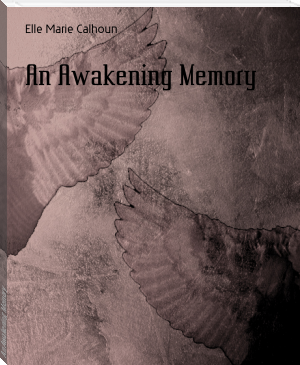Apocalypse, Ellen G. White [best e book reader for android TXT] 📗

- Author: Ellen G. White
Book online «Apocalypse, Ellen G. White [best e book reader for android TXT] 📗». Author Ellen G. White
In the midst of Eden grew the tree of life, whose fruit had the power of perpetuating life. Had Adam remained obedient to God, he would have continued to enjoy free access to this tree and would have lived forever. But when he sinned he was cut off from partaking of the tree of life, and he became subject to death. The divine sentence, "Dust thou art, and unto dust shalt thou return," points to the utter extinction of life. Immortality, promised to man on condition of obedience, had been forfeited by transgression. Adam could not transmit to his posterity that which he did not possess; and there could have been no hope for the fallen race had not God, by the sacrifice of His Son, brought immortality within their reach. While "death passed upon all men, for that all have sinned," Christ "hath brought life and immortality to light through the gospel." Romans 5:12; 2 Timothy 1:10. And only through Christ can immortality be obtained. Said Jesus: "He that believeth on the Son hath everlasting life: and he that believeth not the Son shall not see life." John 3:36. Every man may come into possession of this priceless blessing if he will comply with the conditions. All "who by patient continuance in well-doing seek for glory and honour and immortality," will receive "eternal life." Romans 2:7.
The only one who promised Adam life in disobedience was the great deceiver. And the declaration of the serpent to Eve in Eden--"Ye shall not surely die"--was the first sermon ever preached upon the immortality of the soul. Yet this declaration, resting solely upon the authority of Satan, is echoed from the pulpits of Christendom and is received by the majority of mankind as readily as it was received by our first parents. The divine sentence, "The soul that sinneth, it shall die" (Ezekiel 18:20), is made to mean: The soul that sinneth, it shall not die, but live eternally. We cannot but wonder at the strange infatuation which renders men so credulous concerning the words of Satan and so unbelieving in regard to the words of God. Had man after his fall been allowed free access to the tree of life, he would have lived forever, and thus sin would have been immortalized. But cherubim and a flaming sword kept "the way of the tree of life" (Genesis 3:24), and not one of the family of Adam has been permitted to pass that barrier and partake of the life-giving fruit. Therefore there is not an immortal sinner.
But after the Fall, Satan bade his angels make a special effort to inculcate the belief in man's natural immortality; and having induced the people to receive this error, they were to lead them on to conclude that the sinner would live in eternal misery. Now the prince of darkness, working through his agents, represents God as a revengeful tyrant, declaring that He plunges into hell all those who do not please Him, and causes them ever to feel His wrath; and that while they suffer unutterable anguish and writhe in the eternal flames, their Creator looks down upon them with satisfaction.
Thus the archfiend clothes with his own attributes the Creator and Benefactor of mankind. Cruelty is satanic. God is love; and all that He created was pure, holy, and lovely, until sin was brought in by the first great rebel. Satan himself is the enemy who tempts man to sin, and then destroys him if he can; and when he has made sure of his victim, then he exults in the ruin he has wrought. If permitted, he would sweep the entire race into his net. Were it not for the interposition of divine power, not one son or daughter of Adam would escape.
Satan is seeking to overcome men today, as he overcame our first parents, by shaking their confidence in their Creator and leading them to doubt the wisdom of His government and the justice of His laws. Satan and his emissaries represent God as even worse than themselves, in order to justify their own malignity and rebellion. The great deceiver endeavours to shift his own horrible cruelty of character upon our heavenly Father, that he may cause himself to appear as one greatly wronged by his expulsion from heaven because he would not submit to so unjust a governor. He presents before the world the liberty which they may enjoy under his mild sway, in contrast with the bondage imposed by the stern decrees of Jehovah. Thus he succeeds in luring souls away from their allegiance to God.
How repugnant to every emotion of love and mercy, and even to our sense of justice, is the doctrine that the wicked dead are tormented with fire and brimstone in an eternally burning hell; that for the sins of a brief earthly life they are to suffer torture as long as God shall live. Yet this doctrine has been widely taught and is still embodied in many of the creeds of Christendom. Said a learned doctor of divinity: "The sight of hell torments will exalt the happiness of the saints forever. When they see others who are of the same nature and born under the same circumstances, plunged in such misery, and they so distinguished, it will make them sensible of how happy they are." Another used these words: "While the decree of reprobation is eternally executing on the vessels of wrath, the smoke of their torment will be eternally ascending in view of the vessels of mercy, who, instead of taking the part of these miserable objects, will say, Amen, Alleluia! praise ye the Lord!"
Where, in the pages of God's word, is such teaching to be found? Will the redeemed in heaven be lost to all emotions of pity and compassion, and even to feelings of common humanity? Are these to be exchanged for the indifference of the stoic or the cruelty of the savage? No, no; such is not the teaching of the Book of God. Those who present the views expressed in the quotations given above may be learned and even honest men, but they are deluded by the sophistry of Satan. He leads them to misconstrue strong expressions of Scripture, giving to the language the colouring of bitterness and malignity which pertains to himself, but not to our Creator. "As I live, saith the Lord God, I have no pleasure in the death of the wicked; but that the wicked turn from his way and live: turn ye, turn ye from your evil ways; for why will ye die?" Ezekiel 33:11.
What would be gained to God should we admit that He delights in witnessing unceasing tortures; that He is regaled with the groans and shrieks and imprecations of the suffering creatures whom He holds in the flames of hell? Can these horrid sounds be music in the ear of Infinite Love? It is urged that the infliction of endless misery upon the wicked would show God's hatred of sin as an evil which is ruinous to the peace and order of the universe. Oh, dreadful blasphemy! As if God's hatred of sin is the reason why it is perpetuated. For, according to the teachings of these theologians, continued torture without hope of mercy maddens its wretched victims, and as they pour out their rage in curses and blasphemy, they are forever augmenting their load of guilt. God's glory is not enhanced by thus perpetuating continually increasing sin through ceaseless ages.
It is beyond the power of the human mind to estimate the evil which has been wrought by the heresy of eternal torment. The religion of the Bible, full of love and goodness, and abounding in compassion, is darkened by superstition and clothed with terror. When we consider in what false colours Satan has painted the character of God, can we wonder that our merciful Creator is feared, dreaded, and even hated? The appalling views of God which have spread over the world from the teachings of the pulpit have made thousands, yes, millions, of skeptics and infidels.
The theory of eternal torment is one of the false doctrines that constitute the wine of the abomination of Babylon, of which she makes all nations drink. Revelation 14:8; 17:2. That ministers of Christ should have accepted this heresy and proclaimed it from the sacred desk is indeed a mystery. They received it from Rome, as they received the false sabbath. True, it has been taught by great and good men; but the light on this subject had not come to them as it has come to us. They were responsible only for the light which shone in their time; we are accountable for that which shines in our day. If we turn from the testimony of God's word, and accept false doctrines because our fathers taught them, we fall under the condemnation pronounced upon Babylon; we are drinking of the wine of her abomination.
A large class to whom the doctrine of eternal torment is revolting are driven to the opposite error. They see that the Scriptures represent God as a being of love and compassion, and they cannot believe that He will consign His creatures to the fires of an eternally burning hell. But holding that the soul is naturally immortal, they see no alternative but to conclude that all mankind will finally be saved. Many regard the threatenings of the Bible as designed merely to frighten men into obedience, and not to be literally fulfilled. Thus the sinner can live in selfish pleasure, disregarding the requirements of God, and yet expect to be finally received into His favour. Such a doctrine, presuming upon God's mercy, but ignoring His justice, pleases the carnal heart and emboldens the wicked in their iniquity.
To show how believers in universal salvation wrest the Scriptures to sustain their soul-destroying dogmas, it is needful only to cite their own utterances. At the funeral of an irreligious young man, who had been killed instantly by an accident, a Universalist minister selected as his text the Scripture statement concerning David: "He was comforted concerning Amnon, seeing he was dead." 2 Samuel 13:39. "I am frequently asked," said the speaker, what will be the fate of those who leave the world in sin, die, perhaps, in a state of inebriation, die with the scarlet stains of crime unwashed from their robes, or die as this young man died, having never made a profession or enjoyed an experience of religion. We are content with the Scriptures; their answer shall solve the awful problem. Amnon was exceedingly sinful; he was unrepentant, he was made drunk, and while drunk was killed. David was a prophet of God; he must have known whether it would be ill or well for Amnon in the world to come. What were the expressions of his heart?
`The soul of King David longed to go forth unto Absalom: for he was comforted concerning Amnon, seeing he was dead.' Verse 39. And what is the inference to be deduced from this language? Is it not that endless suffering formed no part of his religious belief? So we conceive; and here we discover a triumphant argument in support of the more pleasing, more enlightened, more benevolent hypothesis of ultimate universal purity and peace. He was comforted, seeing his son was dead. And why so? Because by the eye of prophecy he could look forward into the glorious future and see that son far removed from all temptations, released from the bondage and purified from the corruptions of sin, and after being made sufficiently holy and enlightened, admitted to the assembly of ascended and rejoicing spirits. His only comfort was that, in being removed from the present state of sin and suffering, his beloved son had gone where the loftiest breathings of the Holy Spirit would be shed upon his darkened soul, where his mind would be unfolded to the wisdom of heaven and the sweet raptures of immortal love, and thus prepared with a sanctified nature to enjoy the rest and society of the heavenly inheritance.
"In these thoughts we would be understood to believe that the salvation of heaven depends upon nothing which we can do in this life; neither upon a present change of heart, nor upon present belief, or a present profession of religion." Thus does the professed minister of Christ reiterate the falsehood uttered by the serpent in Eden: "Ye shall not surely die." "In the day ye eat thereof, then your eyes shall be





Comments (0)